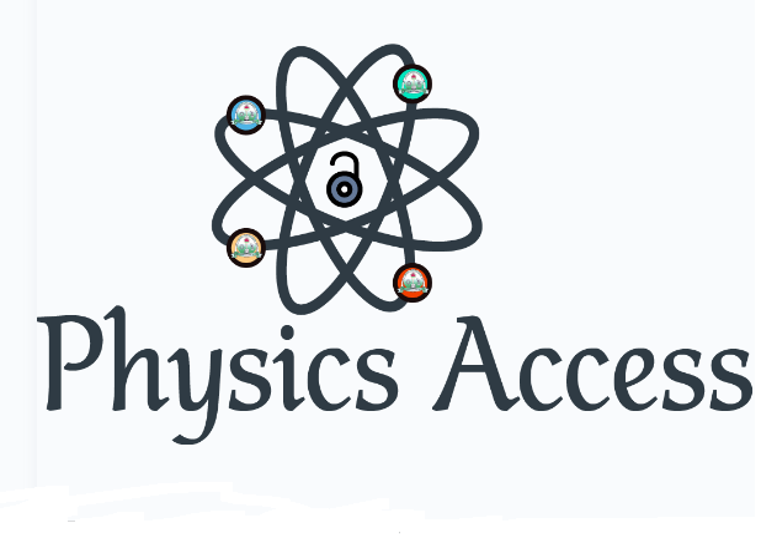Physics Access is an open access journal based in Nigeria published by the Department of Physics, Kaduna State University. As part of our ‘Story behind the journal’ series, DOAJ spoke with the Editor-in-Chief, Dr. Isaac Hyuk Daniel.
Tell us about the Physics Access journal and your role.
The journal is an international open access journal, established in 2020 by the Department of Physics, Kaduna State University, Nigeria. The journal publishes all Physics research, including interdisciplinary and multidisciplinary studies. The journal is mainly funded by the department, but has received some support from the university as well. We also get some funds through APCs, though we have one of the lowest APCs in the field.
I’m the Editor-in-Chief, and I oversee the day-to-day running of the journal. I took up the responsibility of becoming the Editor-in-Chief after coming back home to Nigeria, having earned my PhD from Loughborough University, United Kingdom in 2017. The Department of Physics had a meeting and discussed the need for setting up a Departmental journal that meets international standards, after which I was nominated by the board. This sparked a desire in me to take on this challenge and I was excited about the possibility of shaping the scholarly direction around Physics, Science, and Technology. Ever since I was nominated by the departmental board, and having accepted this responsibility, I’ve worked hard with the Editorial Board and our reviewers to make Physics Access one of the best journals in its chosen fields.
How has the journal developed since starting in 2020?
It’s been slow and steady! It’s not been easy, in terms of all the difficulties we’ve had in setting up the Journal, from its design, payments for the name of the Journal, issuance of ISSN numbers and DOI, and reaching out to experts in various fields to join the Editorial team. Not quite long ago we got indexed in DOAJ, so we’re looking forward to having the kind of journal we wanted when we decided to set it up.
Is this what motivates you to be a part of the journal?
Yes, the whole idea is to produce a journal that is well-known in the field and to have people from all over the world wanting to publish with us. It’s all about the drive to make Physics Access a world-class journal that we could all be proud of. A journal that is transparent in its policies and operations, and open to scrutiny and constructive criticisms.
How does the journal make a difference in your subject field or region?
Our articles are fully open access, so they are free to all. We do have an APC but give a discount to authors from low and middle-income countries and offer a 10% discount to corresponding authors who are members of the Institute of Physics or other reputable institutions. We also offer a 10% discount to corresponding authors who have acted as reviewers for other articles.
In addition, in situations where articles submitted to us do not meet the minimum requirement for possible review and publication, we offer suggestions on how authors could improve their articles and recommend other journals they can publish with.
What are your thoughts on open access?
Open access is the present and the future. It opens a lot of possibilities for journals like ours and researchers around the world, because it enhances visibility, makes the spreading of knowledge more accessible, increases the visibility of both local and international research and leads to citation impact advantage. However, the cost of publishing open access journals is a major concern and I feel there is a need for a continuous conversation about how to fund open access. But I am totally for open access.
Why do you think DOAJ is important to the scholarly community?
I think it is very important because it offers a platform for open access journals like ours to be validated and prove they’re not predatory. The resource also makes our journal easily discoverable thereby improving our visibility. We’ve had authors from other parts of the world sending us articles because we’ve been indexed in DOAJ. That’s been a very important aspect of the development of our journal.
What could DOAJ do in the future to help journals such as yours?
I’m not sure, because I do feel that DOAJ is doing quite a lot, but I think DOAJ can help to make journals like ours more preferred by including additional features like journal metrics on each journal page. But it’s more about visibility, and we’re very grateful to the DOAJ for the reach we have achieved since being indexed.
This story is a part of our series about journals indexed in DOAJ, which digs into the history of selected journals, their views on open access and their motivation for and experience of getting indexed in DOAJ. Each story is based on an interview with a representative of the selected journal.



That’s a wonderful development, I’m so delighted.
Thanks @ Samaila Umar.